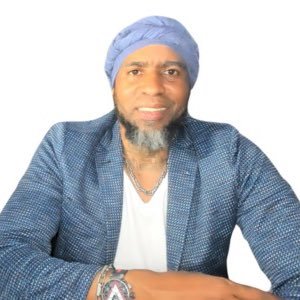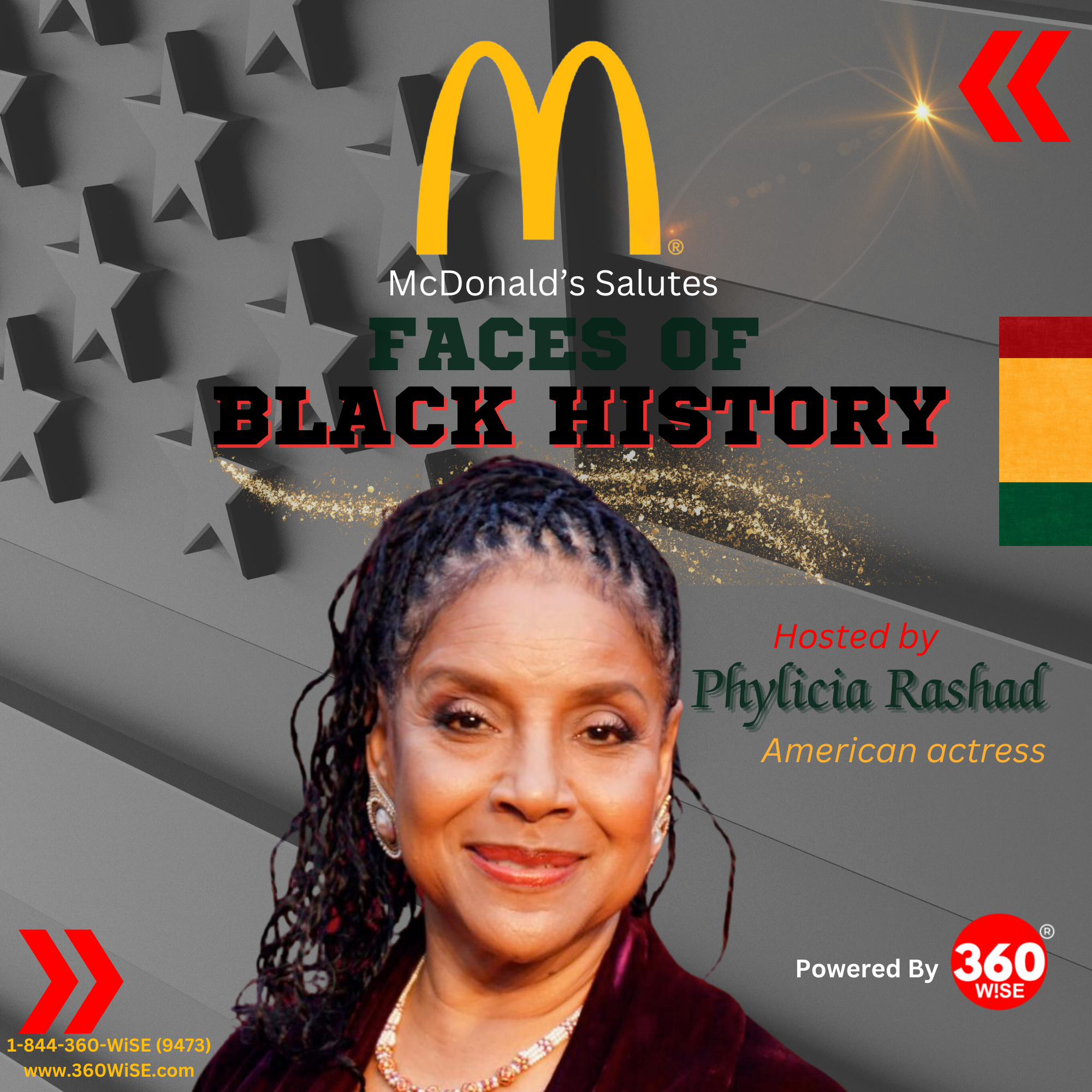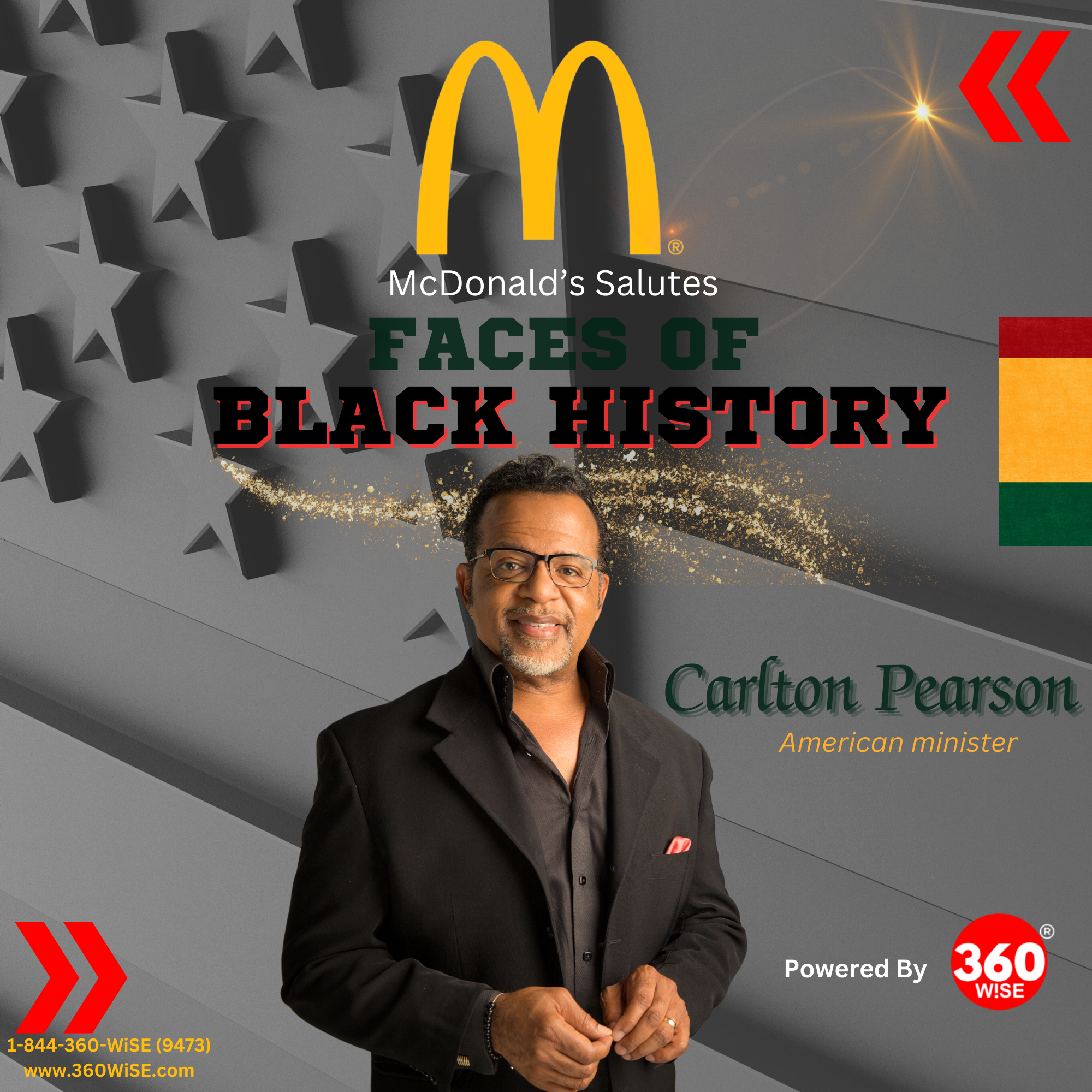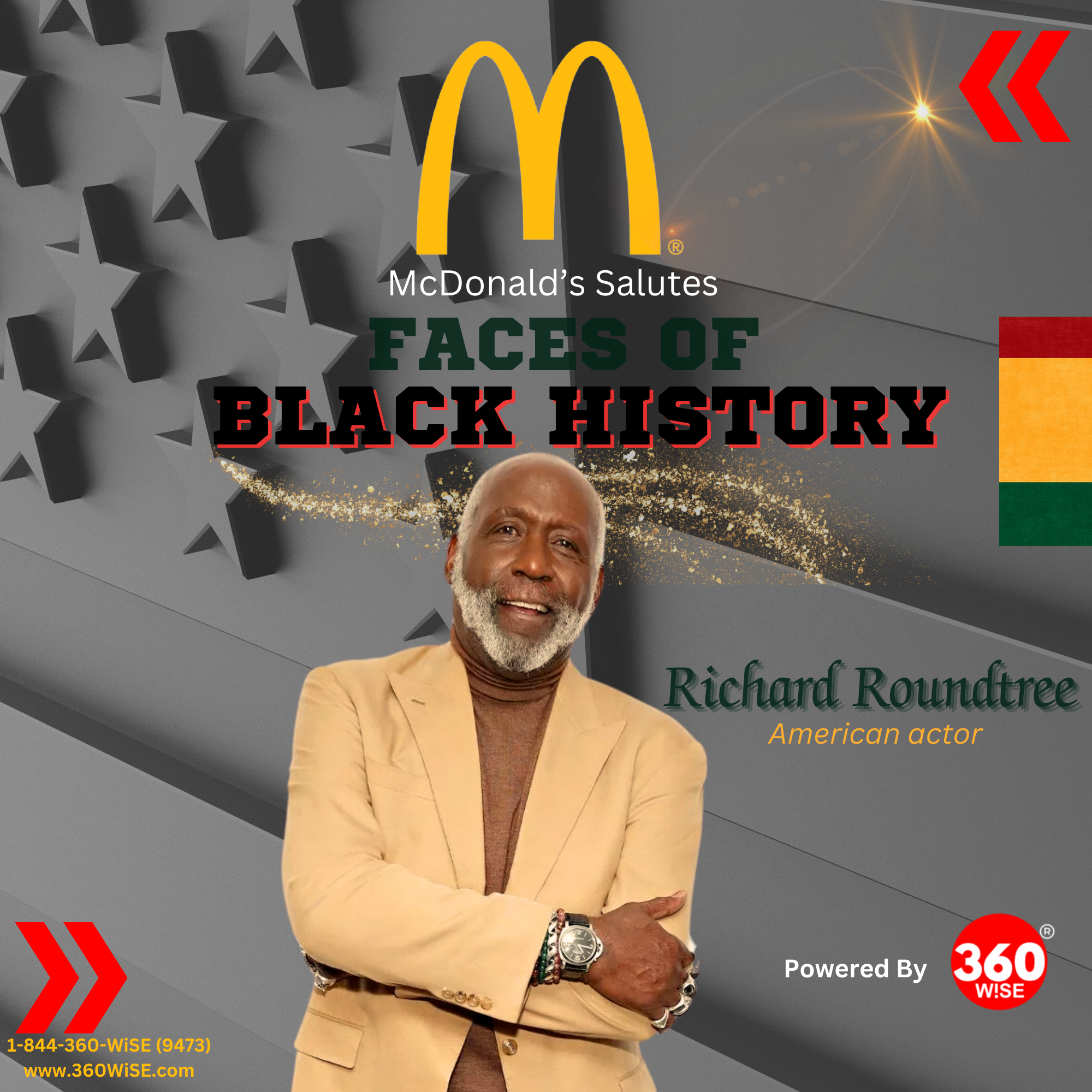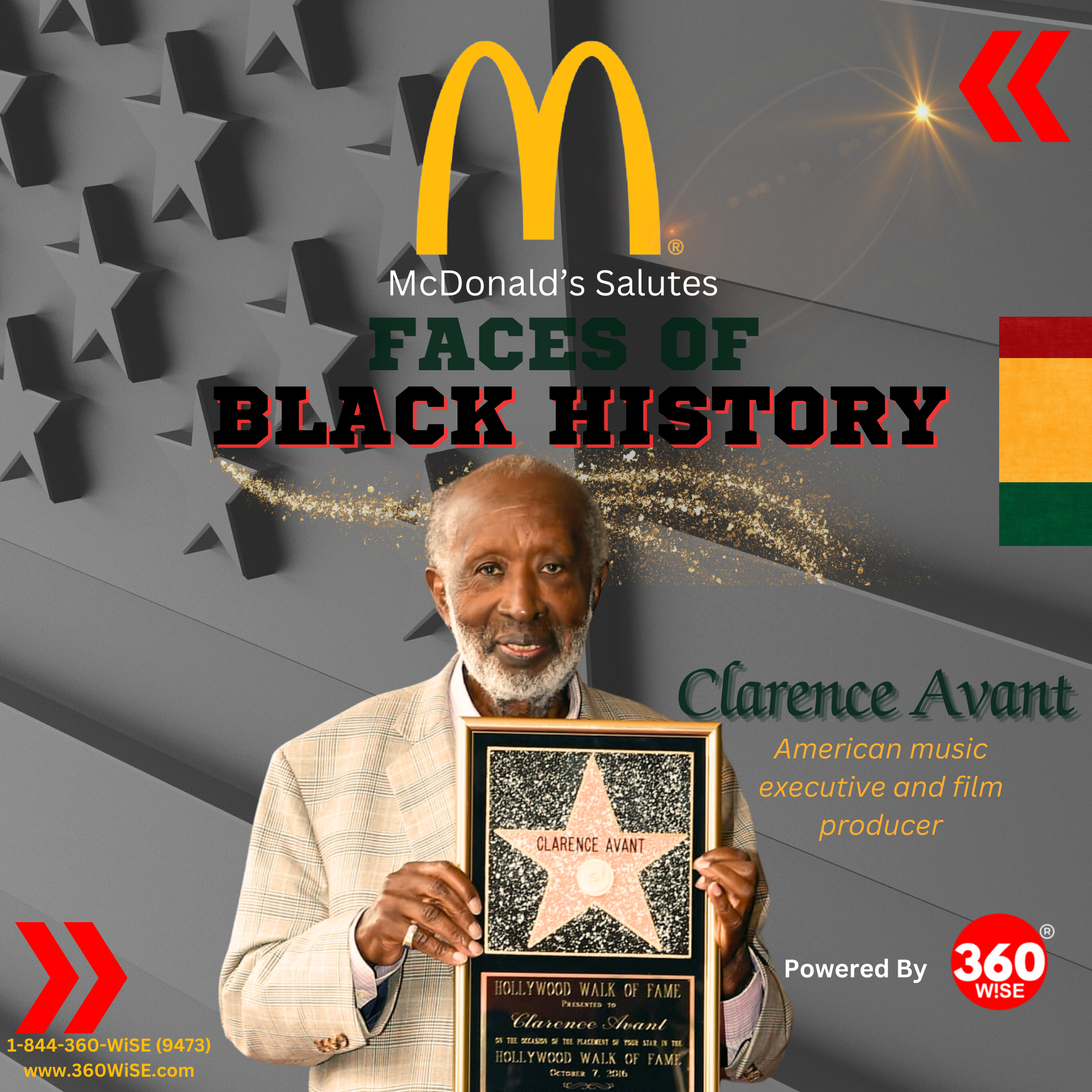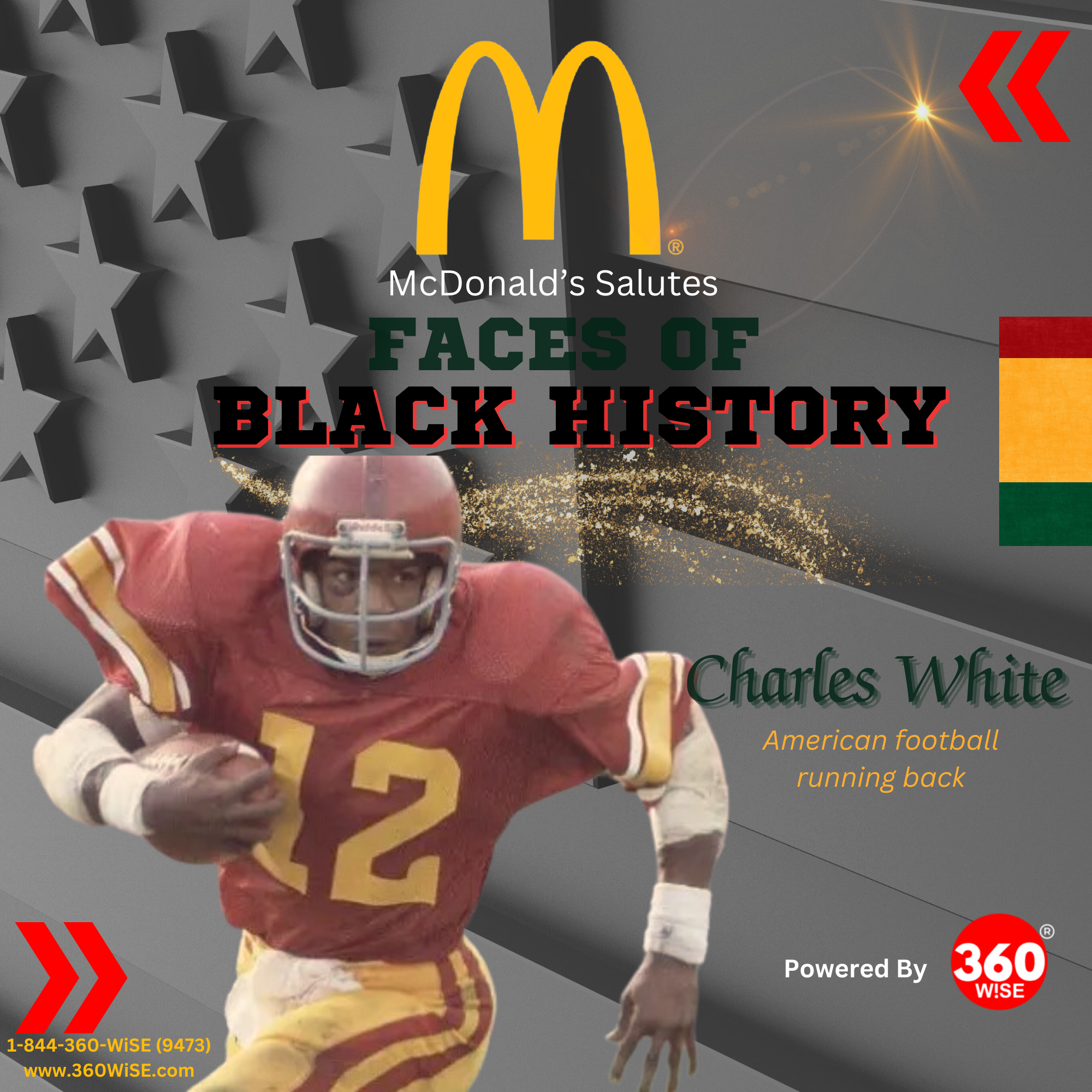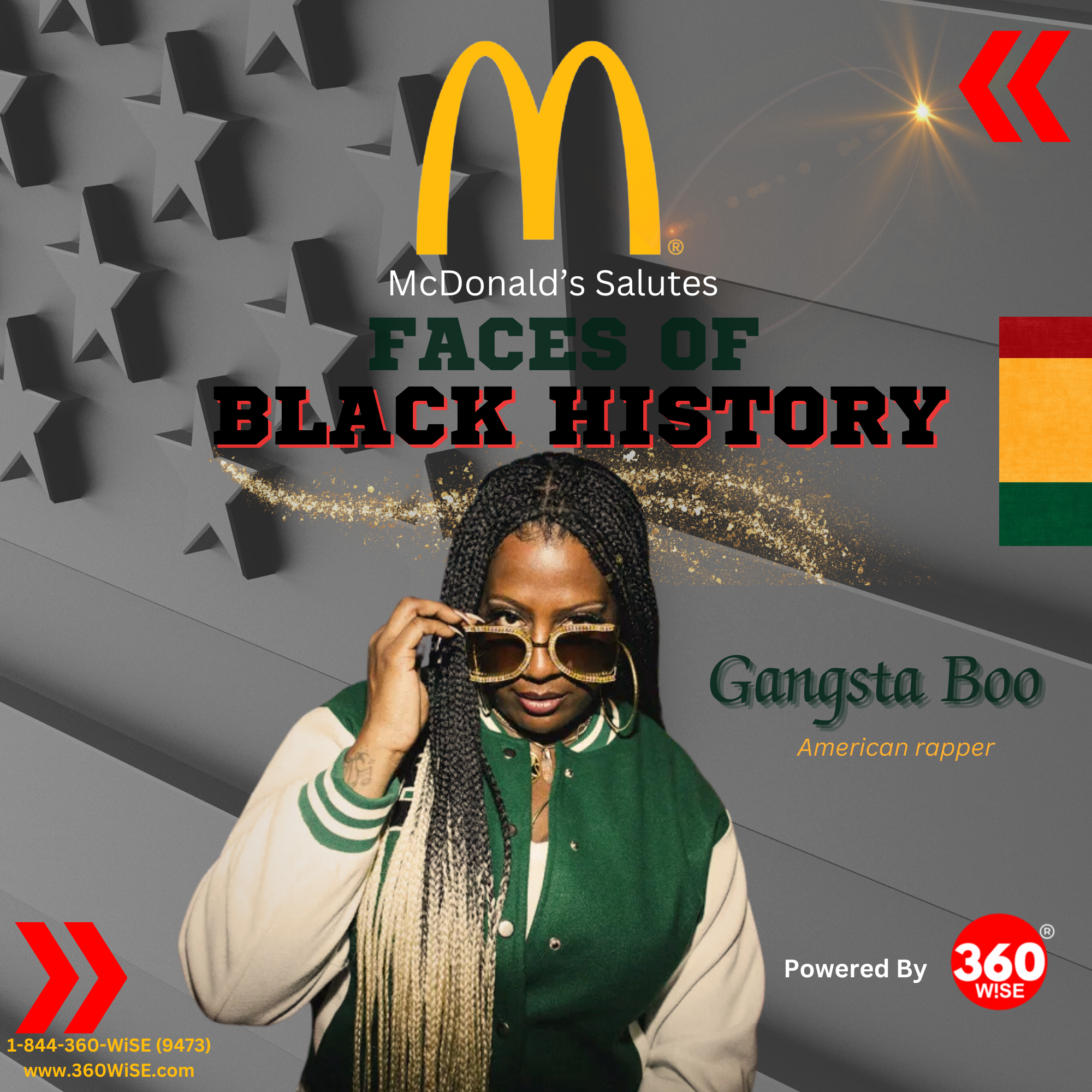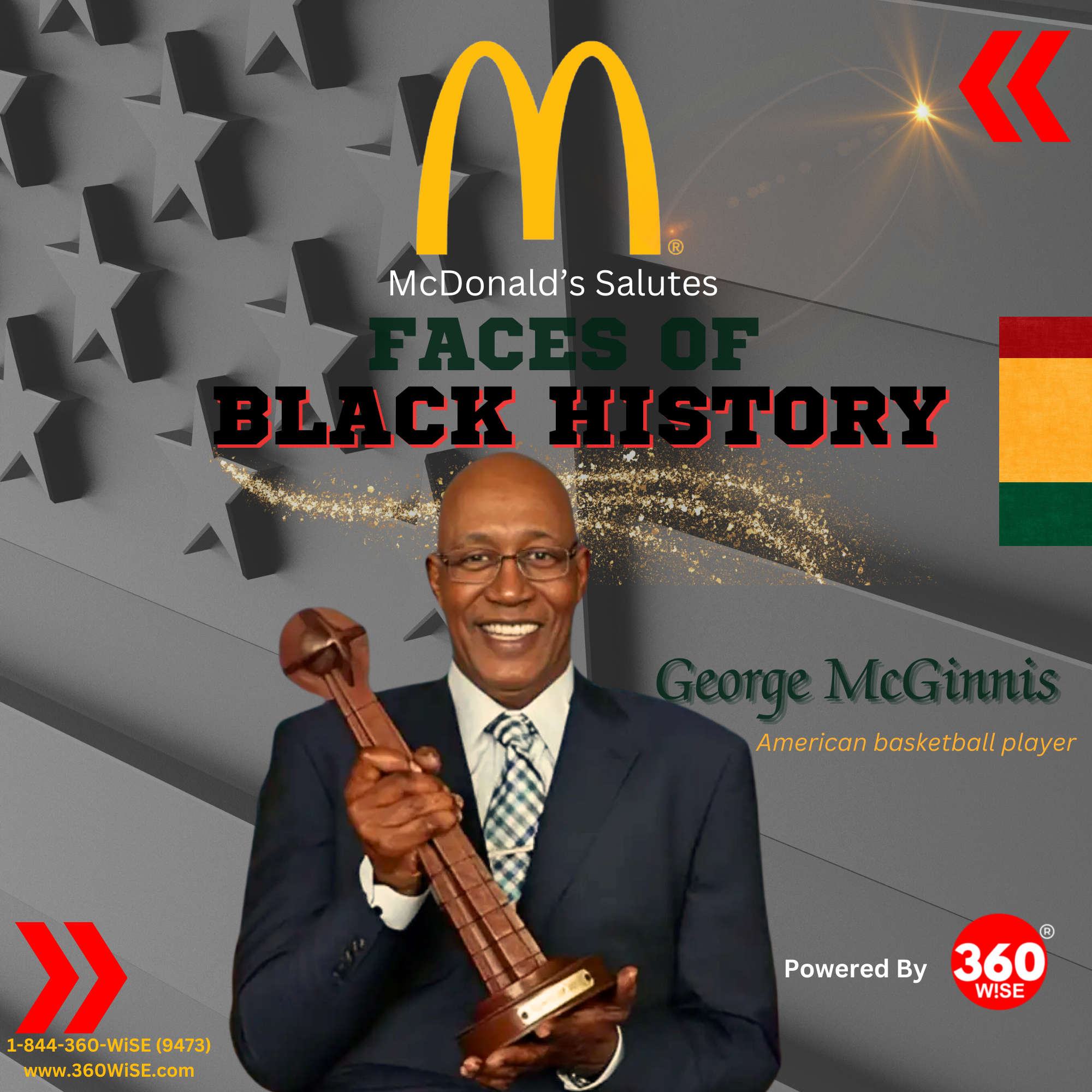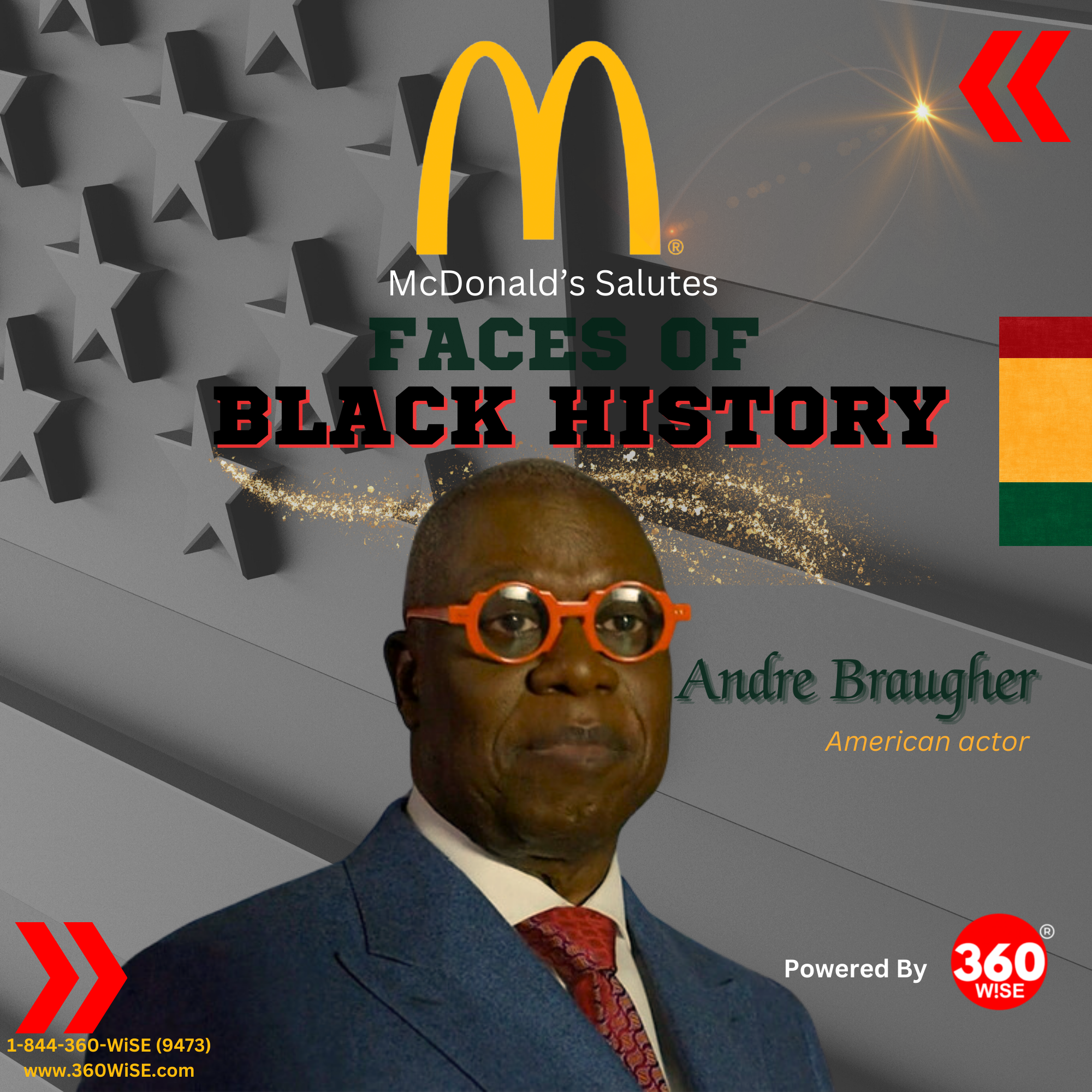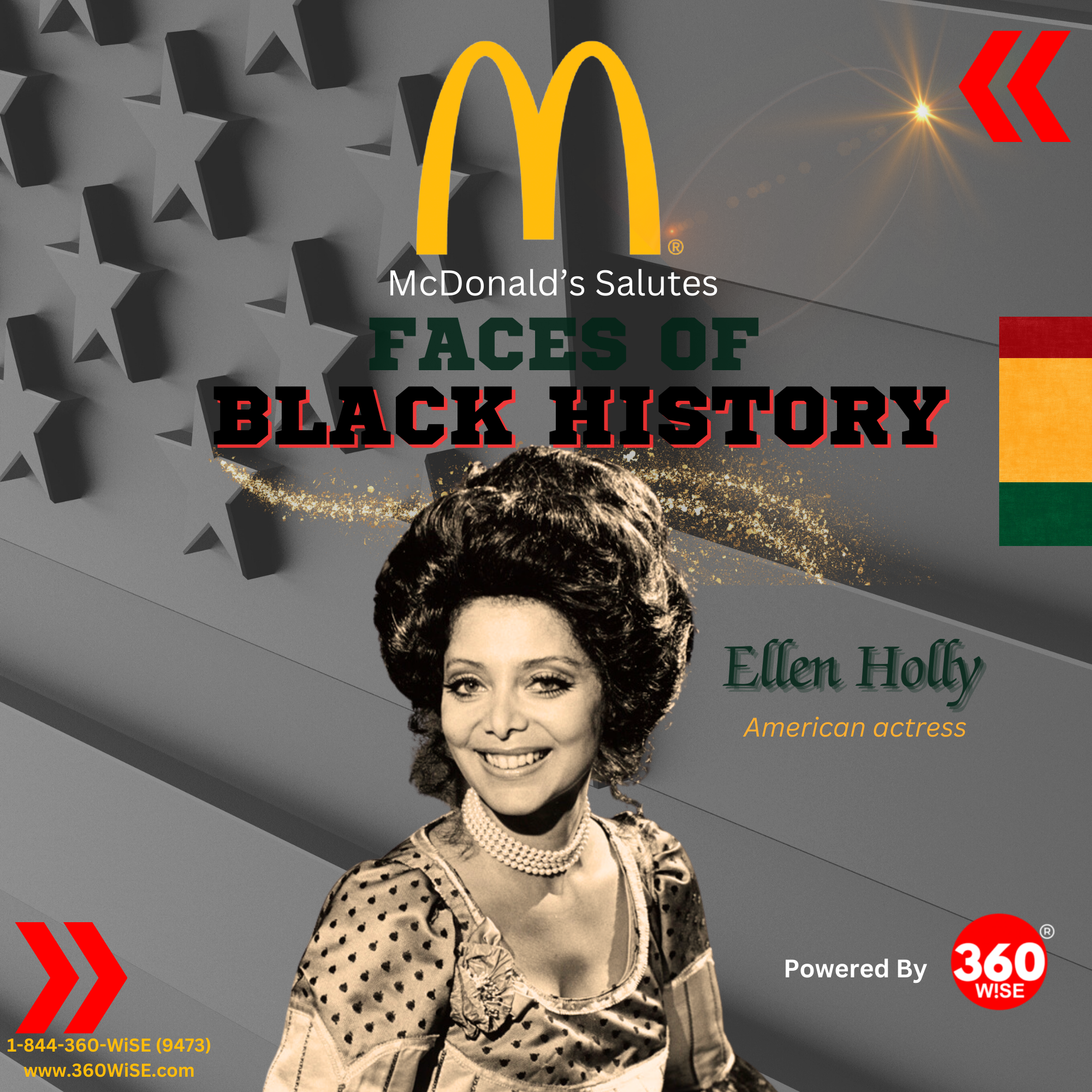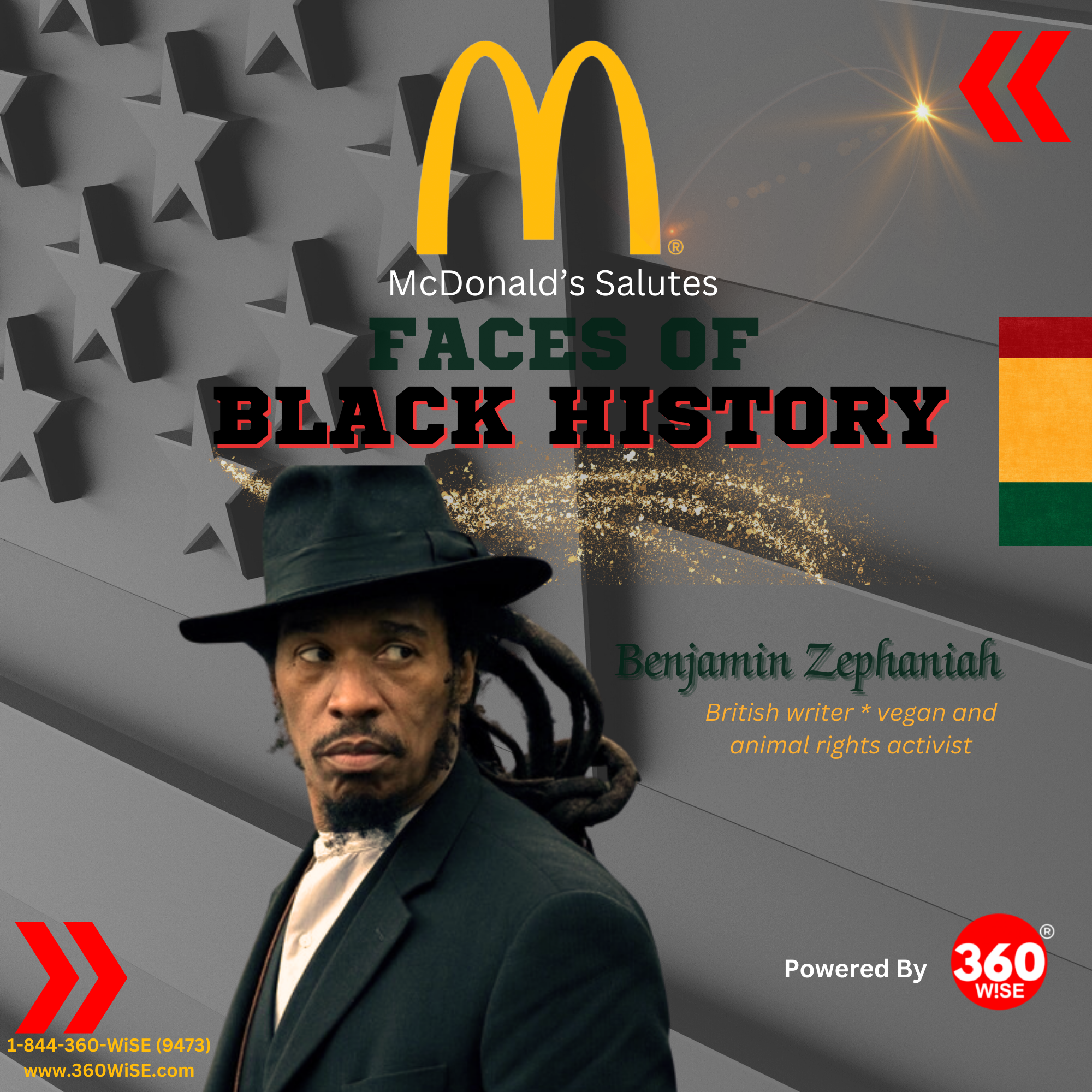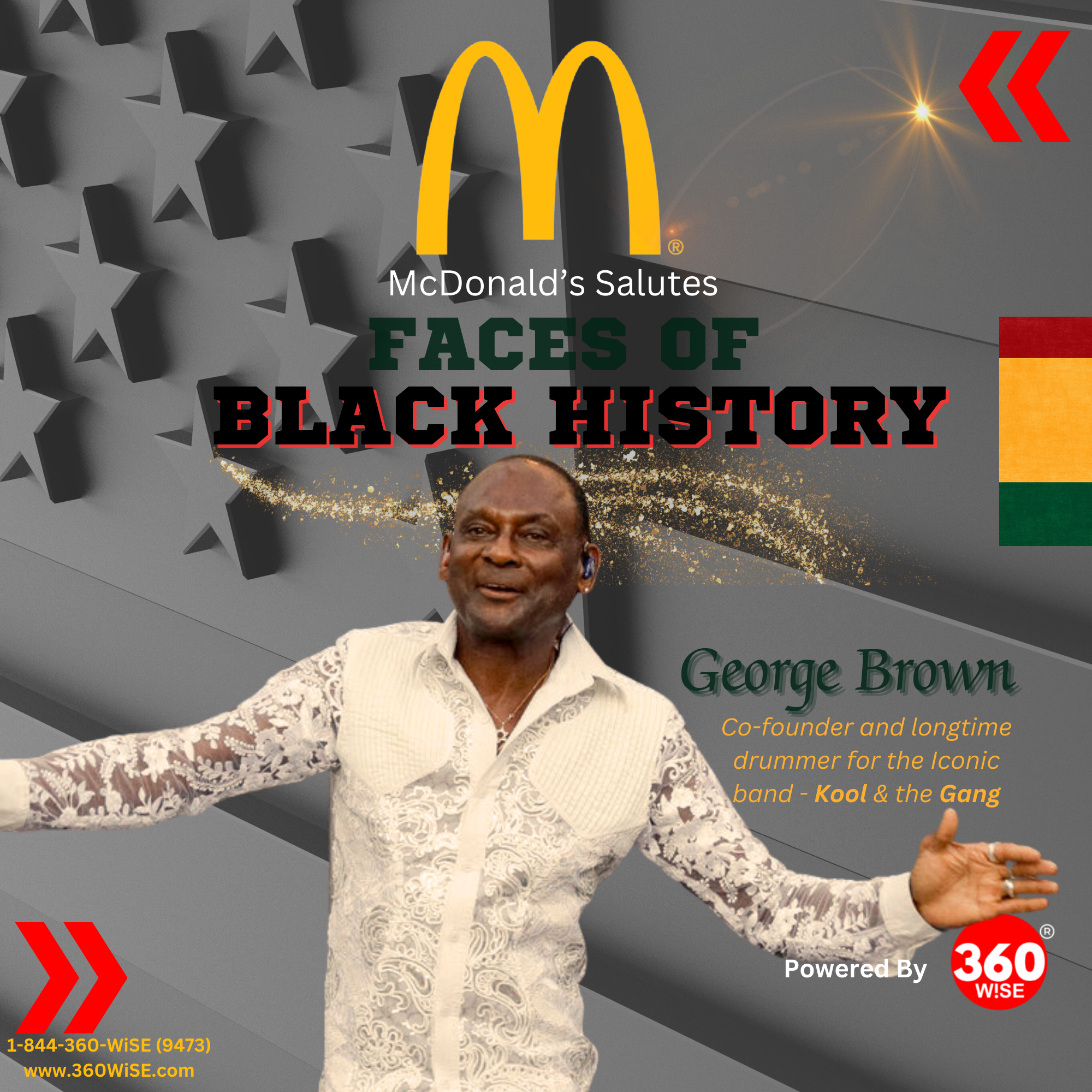 Salutes Faces of Black History Back To McDonald's Salutes Faces of Black History 2025
Salutes Faces of Black History Back To McDonald's Salutes Faces of Black History 2025
Shirley Chisholm

First Black woman to win election to the United States Congress
Shirley Chisholm made history in 1968 as the first Black woman to win election to the United States Congress. Her remarkable tenure spanning seven terms in New York’s 12th congressional district produced over 50 pieces of legislation. These bills championed racial and gender equality, fought poverty, and called for peace during the Vietnam War.
The political establishment threw both racial and gender barriers in her path. Yet Chisholm’s fierce determination drove her to another groundbreaking achievement in 1972 – becoming the first Black candidate to pursue a major party’s presidential nomination and the first woman to seek the Democratic Party’s nomination. Her powerful campaign message “Unbought and Unbossed” embodied her authentic character and steadfast dedication to amplifying voices from marginalized communities.
This story traces the extraordinary path of a Brooklyn teacher born to immigrant parents who became one of America’s most significant political pioneers. We’ll explore her distinctive leadership approach, the historic presidential campaign that challenged conventions, and the lasting changes she brought to American politics through her legislative work.
Breaking Barriers: Shirley Chisholm’s Rise to Congress
Shirley St. Hill Chisholm, daughter of parents from Barbados and Guyana, started her career as a dedicated nursery school teacher. Her educational foundation grew stronger with a master’s degree from Columbia Teachers College in 1951.
From Brooklyn Teacher to Political Activist
The Hamilton-Madison Child Care Center welcomed Chisholm as director from 1953 to 1959. Her passion for community service soon blossomed into political activism. She found her voice in prominent organizations, joining both the National Association for the Advancement of Colored People (NAACP) and her district’s Unity Democratic Club. The seeds of political awareness, planted by her father’s dedication to trade union activism, guided her toward public service.
Overcoming Gender and Racial Discrimination
Chisholm’s candid reflection revealed a stark truth: “I have certainly met much more discrimination in terms of being a woman than being black, in the field of politics”. The Unity Democratic Club’s reluctance to support a female candidate highlighted these challenges. While racial barriers stood firm in American institutions, gender discrimination emerged as her toughest battle in politics.
Historic Congressional Victory in 1968
A court-ordered redistricting reshaped New York’s 12th Congressional District, opening doors for Chisholm’s historic campaign. Her path to victory showcased brilliant strategic thinking:
- She connected with Puerto Rican voters through fluent Spanish conversations
- Her grassroots campaign reached people directly in housing projects, churches, and street corners
- She energized women voters as Brooklyn branch president of Key Women of America
The Democratic primary saw Chisholm triumph over three challengers. Her momentum carried through to the general election, where she claimed 67 percent of the vote against James Farmer. The numbers told a powerful story – 34,885 votes for Chisholm versus Farmer’s 13,777. Her victory speech captured her essence: “My significance is not that I am the first black woman elected to the U.S. Congress, but that I won public office without selling out to anyone”.
Revolutionary Leadership Style
Chisholm’s presence in Congress radiated boldness and authenticity. Her remarkable record shows more than 50 pieces of legislation that championed racial and gender equality.
Building Unlikely Coalitions
Political boundaries melted away under Chisholm’s skilled diplomacy. She surprised many by collaborating with segregationist George Wallace, recognizing a shared mission to empower voiceless Americans. This talent for cross-party collaboration proved vital when passing Title IX legislation in 1972, eliminating sex-based discrimination in education.
Speaking Truth to Power
Her maiden speech on the House floor boldly confronted President Nixon’s choice to prioritize Vietnam War funding over welfare and education programs. She stood firm against weapons development and the Vietnam War. Her passionate calls for full employment established her as Congress’s voice of conscience and change.
Fighting for the Marginalized
Every piece of Chisholm’s legislative work aimed to lift up America’s forgotten communities. Her signature initiatives championed:
- Creation of public daycare centers
- Better unemployment protection for domestic workers
- Passage of the Equal Rights Amendment
- Protection of women’s reproductive freedoms
Her founding roles in both the Congressional Black Caucus and National Organization of Women amplified voices traditionally silenced in Washington. She proclaimed, “Unless we start to fight and defeat the enemies in our own country — poverty and racism — and make our talk of equality and opportunity ring true, we are exposed in the eyes of the world as hypocrites when we talk about making people free”.
The nickname “Fighting Shirley” perfectly captured her fearless spirit. Her leadership showed America that lasting change blooms from diverse partnerships rooted in unwavering principles.
The 1972 Presidential Campaign
A Baptist church in Brooklyn set the stage for Shirley Chisholm’s groundbreaking presidential announcement on January 25, 1972. Her powerful words called for a “bloodless revolution” at the Democratic nominating convention.
Challenging the Political Establishment
Twelve white male candidates stood between Chisholm and the presidency. The Democratic establishment greeted her candidacy with immediate doubt. True to her principles, she kept her powerful message: “Unbought and Unbossed”. Her words rang clear: “I am not the candidate of black America, although I am black and proud. I am not the candidate of the women’s movement of this country, although I am a woman and equally proud of that”.
Campaign Strategies and Challenges
Her team worked magic with a modest budget of $300,000. The campaign weathered numerous storms:
- Major networks blocked her from televised debates
- Death threats struck three times, bringing Secret Service protection
- Both the Congressional Black Caucus and women’s movement leaders held back support
- Primary ballot access proved an endless struggle
Her fourteen-state campaign reached its peak in California, where she earned 157,435 votes for a fourth-place finish.

Impact on American Politics
The Democratic National Convention saw Chisholm secure 152 delegate votes, surpassing political giants like Senators Hubert Humphrey and Edward Muskie. She broke new ground as the first woman to join a United States presidential debate. While George McGovern claimed the nomination, Chisholm’s campaign proved presidential politics belonged to all Americans, not just white men. Years later, she reflected, “I ran for the presidency, despite hopeless odds, to demonstrate the sheer will and refusal to accept the status quo”.
Legislative Legacy and Accomplishments
Seven remarkable terms in Congress saw Shirley Chisholm introduce more than 50 pieces of groundbreaking legislation.
Key Bills and Policy Initiatives
Social justice stood at the heart of Chisholm’s mission. Her crowning achievement arrived in 1974 with minimum wage protections for domestic workers. The Special Supplemental Nutrition Program for Women, Infants and Children (WIC) bears her lasting imprint. Her legislative victories embraced:
- Broader access to food stamps
- Protection for domestic workers through unemployment benefits
- Steadfast support for the Equal Rights Amendment
- Public funding for daycare centers
Committee Leadership Roles
The Agriculture Committee assignment didn’t match her urban district’s needs. Chisholm challenged this placement, securing roles that served her community. Her tenacity paid off when she became the first Black woman and second woman ever to serve on the powerful House Rules Committee. The House Democratic Caucus recognized her leadership skills, electing her Secretary from 1977 to 1981.
Advocacy for Education and Civil Rights
Education opened doors in Chisholm’s life, inspiring her creation of SEEK (Search for Education, Elevation and Knowledge). This program welcomed low-income students into the CUNY system. Her vision reached beyond American shores – she led the Congressional Black Caucus Task Force on Haitian Refugees while standing firm against South African apartheid. Black women worldwide found a champion in Chisholm, who elevated their human rights concerns on the global stage.
Conclusion
Shirley Chisholm’s path from Brooklyn classrooms to political prominence reshaped American democracy. Her bold leadership paired with concrete achievements across education, civil rights, and women’s equality created new possibilities for future leaders.
The “Unbought and Unbossed” philosophy echoes through today’s halls of power. Millions of Americans still benefit from her enduring gifts – the WIC program nourishing families and minimum wage protections supporting domestic workers.
Each step Chisholm took proved authenticity and determination could break through society’s toughest barriers. Today, when women and people of color take their oath of office, they carry forward her powerful truth – meaningful progress demands both courage and unwavering conviction.
Her story speaks clearly – true leaders stand firm for justice despite the odds. One person’s brave choice to challenge the status quo opened doors that can never close again. American democracy stands stronger, richer, and more inclusive because Shirley Chisholm dared to be herself.
References
[1] – https://www.womenshistory.org/education-resources/biographies/shirley-chisholm
[2] – https://blackhistory.news.columbia.edu/people/shirley-chisholm
[3] – https://www.britannica.com/biography/Shirley-Chisholm
[4] – https://womenshistory.si.edu/blog/fighting-shirley-chisholm
[6] – https://en.wikipedia.org/wiki/Shirley_Chisholm
[11] – https://americanswhotellthetruth.org/portraits/shirley-chisholm/
[12] – https://www.brooklyn.edu/wgst/chisholm/
[14] – https://www.zinnedproject.org/news/tdih/shirley-chisholm-announces-campaign/
[15] – https://wams.nyhistory.org/growth-and-turmoil/growing-tensions/shirley-chisholm-runs-for-president/
[17] – https://www.pbs.org/opb/thesixties/topics/politics/newsmakers_2.html
[18] – https://www.history.com/news/shirley-chisholm-presidential-campaign-george-wallace
[19] – https://www.history.com/news/shirley-chisholm-career-milestones
[20] – https://www.archives.gov/research/african-americans/individuals/shirley-chisholm

QUICK FACTS

Thank you to the New York Tristate Owner and Operators Association for your continued support.


